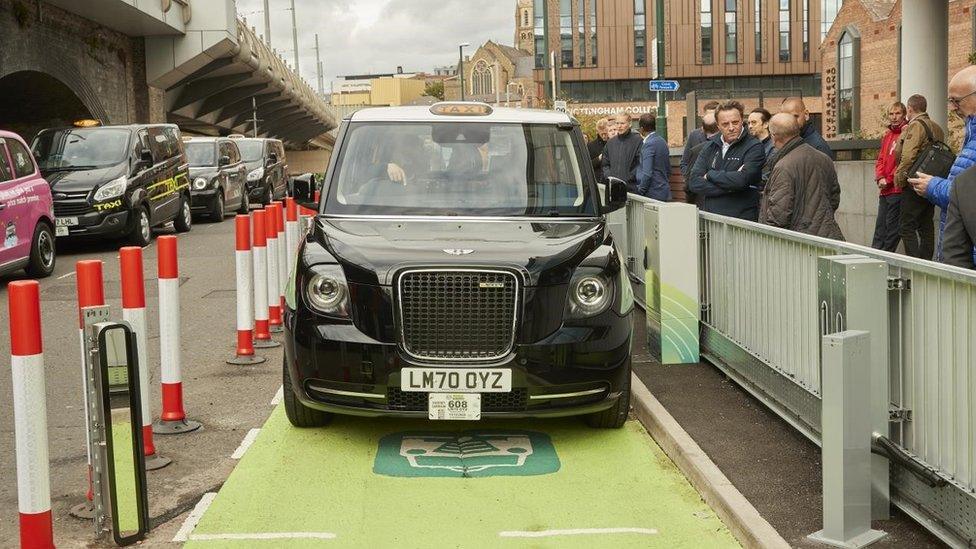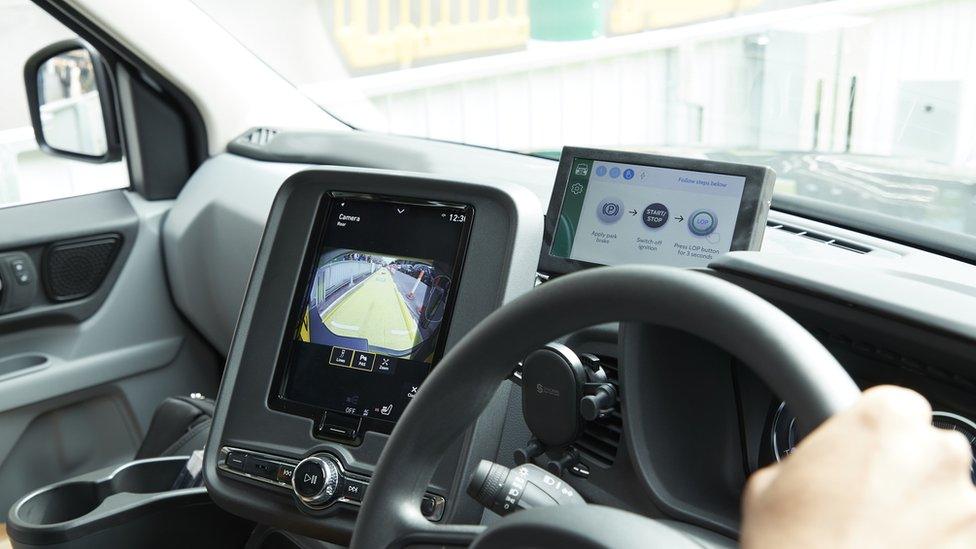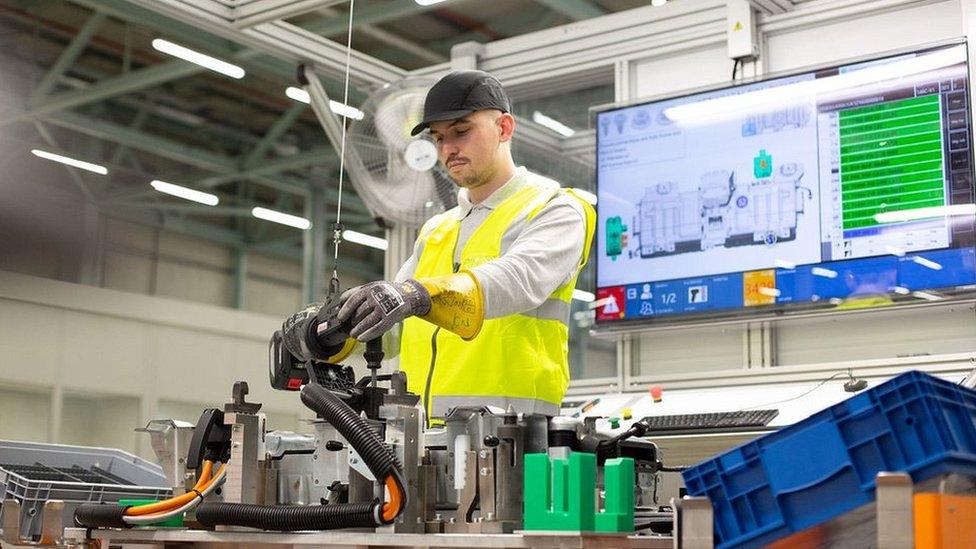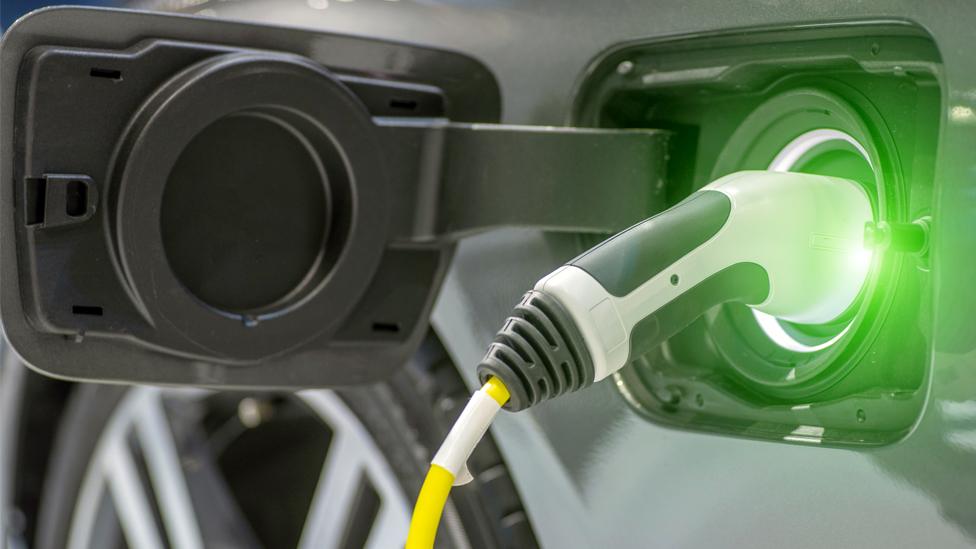UK's first wireless electric taxi charging rank opens at Nottingham station
- Published

Taxi drivers can start charging without leaving their vehicle simply by driving over a pad
The UK's first wireless electric taxi charging rank has opened outside Nottingham's railway station as part of a trial.
Nine hackney cabs have been specially adapted so they charge up when parked in the rank.
The aim of the project is to cut pollution by encouraging taxi drivers to switch to electric cabs.
It has been paid for with £930,000 from the government's Wireless Charging of Electric Taxis (WiCET) scheme.
Taxi drivers can start charging without leaving their vehicle simply by driving over a pad built into the road.
Nottingham City Council said 19 drivers have so far volunteered to test the electric cabs helping to identify advantages and disadvantages of the new technology and iron out any problems.
The initiative has been led by the Loughborough-based Centre of Excellence for Low Carbon and Fuel Cell Technologies (Cenex) which has worked with partners including the council and Transport for London.

The city council said 19 drivers have volunteered to test the electric cabs so far
Councillor Audra Wynter, the city council's portfolio holder for highways, transport and parks, said: "I'm delighted to see Nottingham's UK-leading wireless taxis hit the streets.
"This amazing new technology will make it easy and convenient for taxi drivers to charge their vehicles on-street between passengers and make a big difference in local air quality.
"This is another example of Nottingham leading the way in transport innovation, as we lead the country to become carbon neutral by 2028."
Richard Sander, WiCET project manager and technical specialist at Cenex, said: "Wireless charging has the potential for effective deployment across a wide range of applications from public transport to emergency vehicles and mobility solutions, and the results from our research will go on to inform future deployments.
"We are extremely proud to be starting the first physical trial of wireless charging of taxis in the UK here in Nottingham.
"This is a big step in understanding and demonstrating the potential of wireless charging as a core technology in the electric vehicle transition."

Follow BBC East Midlands on Facebook, external, on Twitter, external, or on Instagram, external. Send your story ideas to eastmidsnews@bbc.co.uk, external.
Related topics
- Published26 September 2022

- Published26 September 2022
